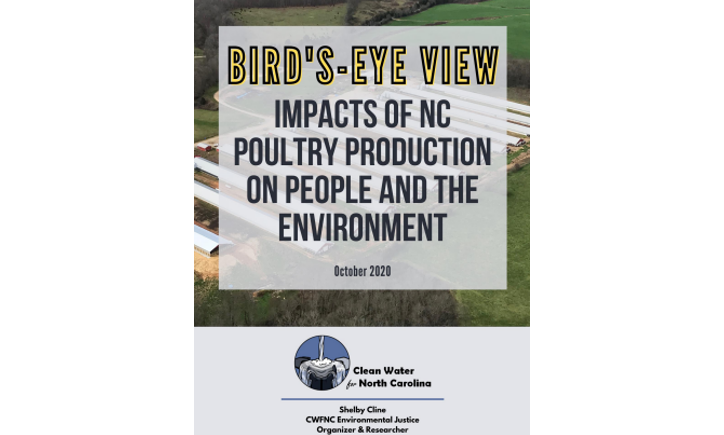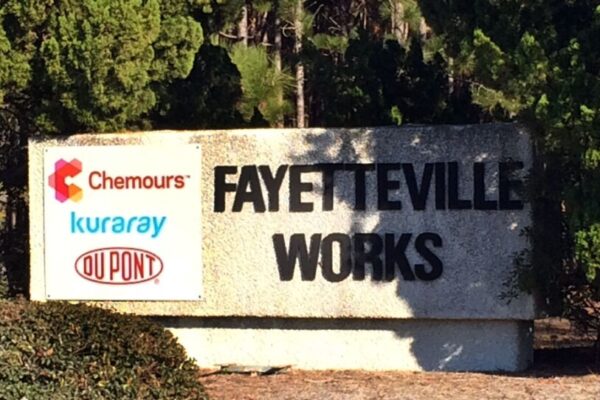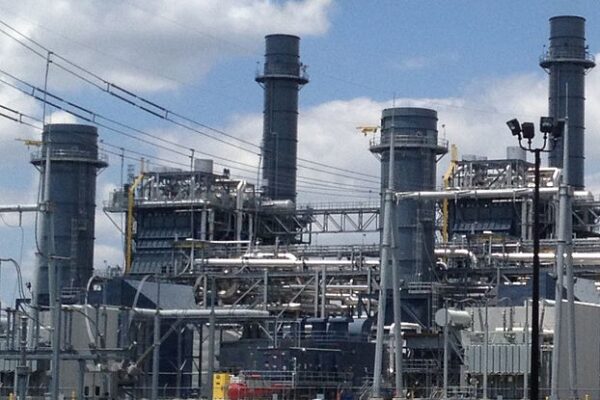Poultry rules the roost in North Carolina. According to the U.S. Department of Agriculture, poultry farming is now North Carolina’s #1 agricultural commodity, and with that rise to the top comes a rise in the problems it brings to communities. Clean Water for NC’s report, Bird’s-eye View: Impacts of NC Poultry Production on People and the Environment, gathers research on the social, environmental, and health impacts of NC’s poultry industry.
In North Carolina, the number of poultry farms has dramatically increased since the 1997 state moratorium on new hog farms. Poultry operations often house hundreds of thousands of birds, are built close to schools and churches, and found in areas with existing pollution. For these communities, new poultry farms only add to concerns for people’s health, property values, and quality of life. The waste produced by these mega-farms can be overwhelming, leading to water contamination from runoff, decreased air quality, and an increase in pests like flies and rodents.
Life isn’t easy for those working in this industry, either. Major poultry companies contract with farmers to raise their birds, and these growers often face uncertainty around their income as they compete with other contractors for better pay based on the supposed quality of their flocks with some growers falling into debt to keep up with the demands of their contracting companies. Other struggles exist for processing plant employees, many of whom are vulnerable to exploitation due to language barriers or citizenship status. Throughout the COVID-19 pandemic, these workers have had to decide between their personal health and safety or a paycheck, making a difficult job even harder.
The report itself is part of a bigger project at Clean Water, whose goals are not only to help inform communities about the social, health, and environmental problems associated with poultry production, but also to build a support network for people who have concerns. Program Manager, Amanda Strawderman explains, “We hope to hear from folks who understand these issues first-hand. We want to listen first, then ask if and how we might help these community members achieve what they see as important goals for improving the conditions they are experiencing.”
Do you have a story about how this industry has affected you or your community? The final part of Bird’s-eye View is dedicated to the inclusion of community voices and an invitation for farmers, workers, and neighbors of poultry operations to speak about their experiences with this industry. If you wish to contribute to this report, or are in need of support and interested in connecting with other poultry-impacted community members, Clean Water would like to hear from you. Confidential submissions are welcome. Read the full report series here.
If interested, please contact Clean Water for NC staff (email:[email protected] or [email protected]; call: 828-252-1291), and let’s have a conversation!






